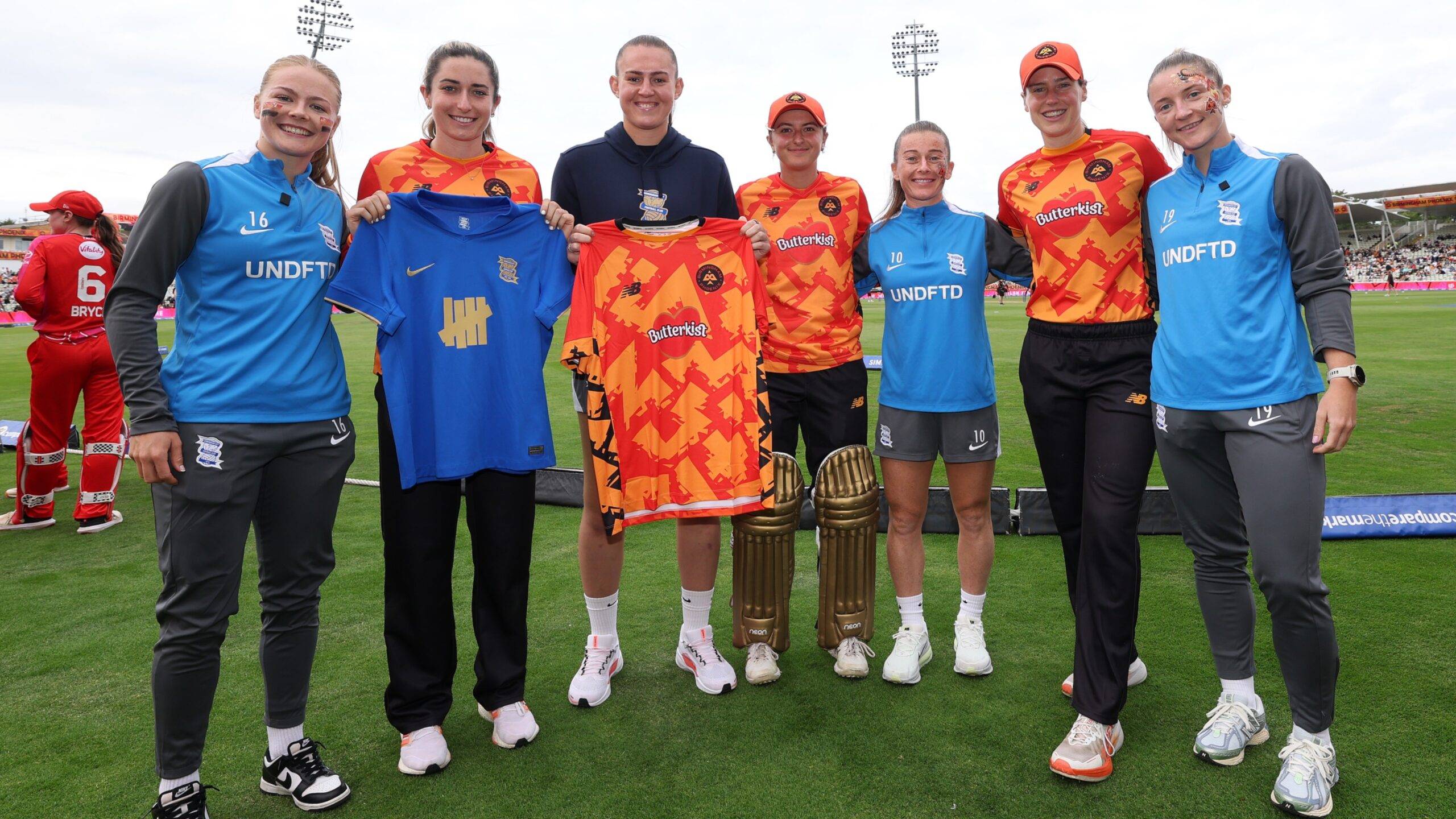The reasons why Blues owners Knighthead Capital have muscled in on cricket have been revealed.
Knighthead splashed out £40 million for a 49 per cent stake in Birmingham Phoenix, the city’s Hundred franchise club.
Warwickshire County Cricket Club, who host the Phoenix at Edgbaston, retained a controlling 51 per cent, although they and Knighthead will run the side as a partnership from next month.
In essence, Knighthead were wowed by the fact a ‘start-up’ competition became profitable in its first year and its core audience are women and children.
The scope for growth, they believe, is huge – on a global stage – and the Hundred fills a convenient summer gap between football seasons.
The Phoenix became part of the Knighthead sports portfolio after cricket’s governing body the England and Wales Cricket Board (ECB) announced sales of shares in eight teams, worth around £520 million.
The city’s Superleague netball team, Birmingham Panthers, have also been assimilated by Knighthead and it all fits neatly with the synergies around the proposed £3 billion Sports Quarter in East Birmingham.
There is no suggestion the Phoenix will move to a new, purpose-built cricket arena at the Sports Quarter – nor Warwickshire move out of Edgbaston, for that matter. But they are likely to train and prepare at the future state-of-the-art facility on completion and have an operational base there.
Kyle Kneisly, a Blues director and highly-regarded senior analyst at Knighthead, is spearheading what many see as a surprise and intriguing cross-sport gamble.
In a revealing interview with The Times, Kneisly admitted that Knighthead were not seeking a cricket investment but, on further investigation, combined with the fabled tradition and history of powerhouse Warwickshire and the Edgbaston venue on the doorstep, it made sense.
When he attended a game at the Oval last year, he was struck by the number of women and children enjoying proceedings and the atmosphere.
“We weren’t looking for a cricket investment, but when we saw the numbers, a start-up league that’s profitable in year one with growth potential like this – it was a comfortable bet. That just doesn’t happen. In the tech world, those are unicorns. In sport, it’s an anomaly. No tournaments make money from year one.”
As for the family feel of the Hundred, Kneisly says: “That’s what we’re missing on the football side. You walk into Edgbaston, and the demographics are right there: families, kids, women. Those are the groups every other sport is struggling to reach. And here, it’s already happening.”
“We have the engine of the football club running nine to ten months of the year,” Kneisly also comments. “Then in summer, we have a little void – and into that comes a marquee cricket tournament. That’s a huge opportunity.”
The Hundred is not without its critics. It’s a dreamt-up competition – nowhere else in the world is there a 100-ball format – and accusers say it has ‘dumbed down’ the sport.
England’s Tests, the County Championship, one day competition and the T20 Blast have been shoved around to accommodate it as the showpiece of the summer, plus there is no real historical connection or player affiliation to the traditional counties.
The ECB point to the money generated going back to safeguard the futures of 18 first class counties and help grow and develop cricket, with at least £50 million earmarked for grassroots.
As we know from how Knighthead co-founder and co-CEO Tom Wagner bullishly goes about things, none of this was off-putting. If anything, it added fuel.
“There were plenty of naysayers in the investment community saying these auctions will fail,” says Kneisly. “We always run towards the fires. For us, it was helpful to see resistance among very smart people – that’s the sandbox we like to play in.”
With the splurge of investors like Knighthead involved, the Hundred is sure to experience change in future years. There is speculation it will be tweaked into a T20 format, for better world alignment.
When sales in the Trent Rockets (to Chelsea owner Todd Boehly) and Oval Invincibles are rubber-stamped, four Hundred sides will be at least partially influenced by Indian Premier League (IPL) owners.
Reliance Industries Limited, owned by the multi-billionaire Ambani family who control Mumbai Indians – the richest family dynasty in India – are to purchase a 49 per cent stake in the Invincibles.
Indeed, take this excerpt from Elizabeth Ammon’s article in The Times:
That global outlook is perhaps the clearest motivation. In the Hundred’s new ownership structure Knighthead now sits alongside Indian Premier League franchises, tech billionaires and seasoned sports executives. “It’s like being in the room where it happens,” Kneisly says.
He expects Australia’s Big Bash eventually to move into private hands and predicts an interconnected triangle of privately owned leagues in India, England and Australia shaping the sport’s commercial future. “You don’t want to be on the outside of that.”
Blues chairman Wagner will become co-chairman of Birmingham Phoenix and sit on the overall management board of the Hundred. Kneisly is already listed as a director of the Phoenix.
Although Blues and Warwickshire have always had strong ties, the investment in the Phoenix will not mean it now becomes ‘Blues’ club’, even though most fans are delighting in saying such.
“We won’t be aligning the Phoenix too closely with Birmingham City, because cricket has to be bigger than a divided city,” says Kneisly. “If we’re too heavy-handed about the Blues, you risk alienating half the audience. Phoenix has to feel like it belongs to the whole region, not just to one club.”









